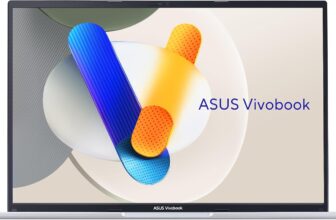

Note: NBA 2K24 does not allow you to take in-game screenshots on Switch. The images throughout this review were taken from the game’s page on Nintendo’s website.
Whenever September rolls around, you can expect a new entry in 2K’s NBA series to bounce onto the court. These games aren’t usually all that revolutionary, with a handful of new features and surprisingly good performance on Switch giving them enough to get by. We expected the same from NBA 2K24, but having got to grips with the latest title, the rinse-and-repeat formula is beginning to show its age, and purchasing the series annually has never been a less attractive prospect.
It is usually the case that each new title can be summed up by, “It’s the same as last year’s, only X has been added and Y has been tweaked”, but the Switch version of NBA 2K24 notably has fewer options than its predecessor.

So, what features make up the roster this time around? Those who have played an NBA 2K title before will find no major surprises here. MyCareer, MyTeam, and MyLeague are still your main ways to play, with the new ‘Mamba Moments’ subbing into the slot occupied by last year’s brilliant ‘Jordan Challenge’. 2K24’s next-gen release brought a whole batch of new features to the table (Crossplay, ProPlay, The W, MyNBA), but with none of them making the cut on Switch, this version feels more watered-down than usual.
Let’s look at what the Switch does offer. Beginning with the newbie, Mamba Moments sees you playing through seven iconic games from Kobe Bryant’s 20-year career, replicating historic plays in an attempt to collect stars and ‘beat’ the game mode. If this sounds like last year’s Jordan Challenge, that’s because it is, but while last year’s new mode was presented as a history lesson for MJ’s career — complete with changing TV graphics and CRT filters — Mamba Moments instead becomes quickly repetitive. This isn’t a celebration of Kobe’s legendary performances but rather a whistle-stop tour of some of his accolades (the omission of his 81-point game in 2006 is baffling to us). A short piece of footage from the games themselves prior to each tip-off provides a nice bit of context, but this feels like a step back from what we have seen before.

Similarly disappointing is the MyCareer mode — which is usually one of our favourites. Much like NBA 2K23, the Switch misses out on the next-gen consoles’ new expansive hub world, ‘The City’ — where players can buy new gear, play streetball or simply strut their stuff — and instead has to settle for the much smaller ‘The Neighborhood’. The mode is still very much built on a pay-to-win structure, with player upgrades and gear dependent on 2K’s in-game currency (VC), which otherwise relies on a silly amount of grinding to catch up with others that walk the courts.
All of this is expected, of course, but what we had not foreseen was that the Switch would miss out on the MyCareer story mode this year — something that has been continued on Sony and Microsoft’s consoles. Instead of watching your player make their way into the league and gradually accumulate minutes and respect (as was the case in 2K23 on Switch), the Nintendo version of ’24 sees you dropped straight into a starting role with a 60 overall rating. With no cutscenes, action, or character growth, our designed player felt about as realistic as the handful of NPCs that coldly throw challenges at you as you walk around The Neighborhood.

Fortunately, MyTeam once again proves itself to be the standout mode. There have been a couple of new additions for 2K24 including an all-new player market and salary cap. The latter of these is a fun way to make things feel that bit more realistic (worry not, 2K23’s decision to remove player contracts has continued into this year) but the new way to buy cards is the real MVP, making it a good amount easier to add some star power to your team in the early days — we are particular fans of the new collections and ‘Deal of the Day’ features.
The control scheme has stayed pretty much the same as it was in NBA 2K23, with a clear shot meter making it easier to land a perfect release. Elsewhere, the mildly frustrating alley-oop commands make a return, though the dunk and lay-up animations look crisp and realistic amongst the otherwise less-detailed player visuals.
Sticking with the on-court action, 2K24 is once again surprisingly smooth on Switch. Of course, the visuals are nothing compared to what you can find on more powerful consoles (good luck identifying any key players as they get back on defence), but the bread and butter of the gameplay is nicely responsive, with the quality sticking pretty firmly at 30 FPS by our estimation in games.

What we see outside of the games themselves isn’t quite as polished, sadly. From the stuttering opening cutscene (a montage of Bryant’s best bits) to the minuscule text of the in-game menus, getting yourself into a game is more draining than the act of playing itself. This isn’t helped by long load times and server issues that make the simple act of switching between game modes comparable to trying to win a Championship Ring. There were several occasions during our playtime where the game required a manual restart from the Switch’s home menu, and one fix that saw us needing to delete and reinstall the game just to get past the initial loading screen — hardly ideal scenarios to play in.
Conclusion
NBA 2K24 is less a continuation of what made the series good on Switch and more a downgrade of what has come before it. Even with how smoothly this one plays on the console, with some clean animations and a sprinkling of improvements to MyTeam being the real MVPs, all of this is overshadowed by just how watered-down this year’s entry feels. With none of the new game modes making the jump to Switch apart from the disappointing Mamba Moments, a severely lessened MyCareer and a model that continues to be plagued by microtransactions and long load times, the 2K franchise on Switch has never needed more of a boost. If you are after a basketball game on the go, last year’s offering is a much better option.

Note: NBA 2K24 does not allow you to take in-game screenshots on Switch. The images throughout this review were taken from the game’s page on Nintendo’s website.
Whenever September rolls around, you can expect a new entry in 2K’s NBA series to bounce onto the court. These games aren’t usually all that revolutionary, with a handful of new features and surprisingly good performance on Switch giving them enough to get by. We expected the same from NBA 2K24, but having got to grips with the latest title, the rinse-and-repeat formula is beginning to show its age, and purchasing the series annually has never been a less attractive prospect.
It is usually the case that each new title can be summed up by, “It’s the same as last year’s, only X has been added and Y has been tweaked”, but the Switch version of NBA 2K24 notably has fewer options than its predecessor.

So, what features make up the roster this time around? Those who have played an NBA 2K title before will find no major surprises here. MyCareer, MyTeam, and MyLeague are still your main ways to play, with the new ‘Mamba Moments’ subbing into the slot occupied by last year’s brilliant ‘Jordan Challenge’. 2K24’s next-gen release brought a whole batch of new features to the table (Crossplay, ProPlay, The W, MyNBA), but with none of them making the cut on Switch, this version feels more watered-down than usual.
Let’s look at what the Switch does offer. Beginning with the newbie, Mamba Moments sees you playing through seven iconic games from Kobe Bryant’s 20-year career, replicating historic plays in an attempt to collect stars and ‘beat’ the game mode. If this sounds like last year’s Jordan Challenge, that’s because it is, but while last year’s new mode was presented as a history lesson for MJ’s career — complete with changing TV graphics and CRT filters — Mamba Moments instead becomes quickly repetitive. This isn’t a celebration of Kobe’s legendary performances but rather a whistle-stop tour of some of his accolades (the omission of his 81-point game in 2006 is baffling to us). A short piece of footage from the games themselves prior to each tip-off provides a nice bit of context, but this feels like a step back from what we have seen before.

Similarly disappointing is the MyCareer mode — which is usually one of our favourites. Much like NBA 2K23, the Switch misses out on the next-gen consoles’ new expansive hub world, ‘The City’ — where players can buy new gear, play streetball or simply strut their stuff — and instead has to settle for the much smaller ‘The Neighborhood’. The mode is still very much built on a pay-to-win structure, with player upgrades and gear dependent on 2K’s in-game currency (VC), which otherwise relies on a silly amount of grinding to catch up with others that walk the courts.
All of this is expected, of course, but what we had not foreseen was that the Switch would miss out on the MyCareer story mode this year — something that has been continued on Sony and Microsoft’s consoles. Instead of watching your player make their way into the league and gradually accumulate minutes and respect (as was the case in 2K23 on Switch), the Nintendo version of ’24 sees you dropped straight into a starting role with a 60 overall rating. With no cutscenes, action, or character growth, our designed player felt about as realistic as the handful of NPCs that coldly throw challenges at you as you walk around The Neighborhood.

Fortunately, MyTeam once again proves itself to be the standout mode. There have been a couple of new additions for 2K24 including an all-new player market and salary cap. The latter of these is a fun way to make things feel that bit more realistic (worry not, 2K23’s decision to remove player contracts has continued into this year) but the new way to buy cards is the real MVP, making it a good amount easier to add some star power to your team in the early days — we are particular fans of the new collections and ‘Deal of the Day’ features.
The control scheme has stayed pretty much the same as it was in NBA 2K23, with a clear shot meter making it easier to land a perfect release. Elsewhere, the mildly frustrating alley-oop commands make a return, though the dunk and lay-up animations look crisp and realistic amongst the otherwise less-detailed player visuals.
Sticking with the on-court action, 2K24 is once again surprisingly smooth on Switch. Of course, the visuals are nothing compared to what you can find on more powerful consoles (good luck identifying any key players as they get back on defence), but the bread and butter of the gameplay is nicely responsive, with the quality sticking pretty firmly at 30 FPS by our estimation in games.

What we see outside of the games themselves isn’t quite as polished, sadly. From the stuttering opening cutscene (a montage of Bryant’s best bits) to the minuscule text of the in-game menus, getting yourself into a game is more draining than the act of playing itself. This isn’t helped by long load times and server issues that make the simple act of switching between game modes comparable to trying to win a Championship Ring. There were several occasions during our playtime where the game required a manual restart from the Switch’s home menu, and one fix that saw us needing to delete and reinstall the game just to get past the initial loading screen — hardly ideal scenarios to play in.
Conclusion
NBA 2K24 is less a continuation of what made the series good on Switch and more a downgrade of what has come before it. Even with how smoothly this one plays on the console, with some clean animations and a sprinkling of improvements to MyTeam being the real MVPs, all of this is overshadowed by just how watered-down this year’s entry feels. With none of the new game modes making the jump to Switch apart from the disappointing Mamba Moments, a severely lessened MyCareer and a model that continues to be plagued by microtransactions and long load times, the 2K franchise on Switch has never needed more of a boost. If you are after a basketball game on the go, last year’s offering is a much better option.






